Meet our PhD students
Read some of our PhD student success stories which demonstrate some of the capacity development activities of CRE RESPOND.
Zenaw Wolie
After completing my high school courses, I pursued a Bachelor of Pharmacy at Jimma University in Ethiopia. Following graduation, I briefly worked as a registered pharmacist in a drug factory, specifically in the betalactam division. However, my desire to further explore medicines and their effects on the human body through additional education led me to academic positions at Dessie Health Science College and Debre Markos University in Ethiopia. Working at these academic institutions provided me with an opportunity for further education, which motivated me to pursue studies in Pharmacology at Addis Ababa University, Ethiopia.
During my career as a lecturer and researcher at Debre Markos University, I recognized the importance of understanding antimicrobials for their safe and effective use and their critical role in saving lives. This realization inspired me to join a project at the UQ Centre for Clinical Research, led by Dr Fekade Sime, focusing on optimizing the stability and dosing regimens of antibiotics for outpatient parenteral antibiotic therapy (OPAT).
Currently, I am pursuing a PhD within the Antimicrobial Optimisation (AMO) group at The University of Queensland Centre for Clinical Research (UQCCR). My project, titled “Optimising the Stability and Dosing Regimens of Antibiotics for Outpatient Parenteral Antibiotic Therapy (OPAT),” is supervised by Dr Fekade Sime and Professor Jason A. Roberts.
One of the most recent memorable experiences in my PhD journey was the opportunity to work with the UQCCR bioanalysis lab group to study the stability of an antibiotic for OPAT use using HPLC. Working alongside Dr Steve Wallis, Dr Helen Wong, and Mr Dusan Marjanovic, and learning to run HPLC as part of the team, was particularly exciting. This experience helped me realize my interest in developing further skills and new methods.
A significant challenge I have faced along my journey is being far from my beloved family—my wife, son, and daughter—who remain in an environment affected by political instability and conflict. The ongoing war and unrest in their region have severely limited their access to basic infrastructure and telecommunications, making it difficult to stay connected. This situation has added emotional strain to both my personal and professional life. It would have been much more difficult without the support of my solid supervisory team, who have made my PhD experience more manageable and enjoyable. My heartfelt gratitude goes to my supervisors, Dr Fekade Sime and Professor Jason A. Roberts, as well as the community at UQCCR.
Outside of my PhD work, I enjoy participating in spiritual life events, reading related books, traveling with colleagues, and browsing social media.
A piece of advice I would give to someone pursuing a similar pathway or career is to stay persistent, communicate effectively with your supervisory team, and maintain a healthy work-life balance.
Yixuan Li
Yixuan Li is currently a PhD student in the Antimicrobial Optimisation (AMO) group at The University of Queensl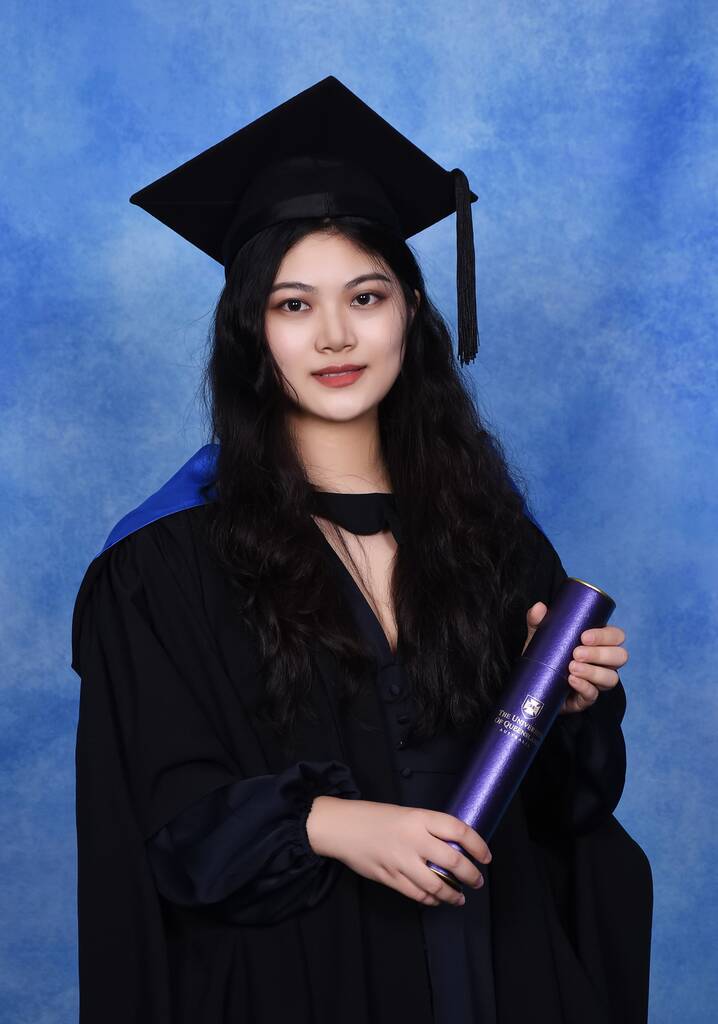 and Centre for Clinical Research (UQCCR). Yixuan’s PhD is titled “In vitro evaluation of the impact of antimicrobial exposure profiles in epithelial lining fluid on bacterial killing and suppression of resistance emergence for critical gram-negative bacteria”.
and Centre for Clinical Research (UQCCR). Yixuan’s PhD is titled “In vitro evaluation of the impact of antimicrobial exposure profiles in epithelial lining fluid on bacterial killing and suppression of resistance emergence for critical gram-negative bacteria”.
Having completed an undergraduate degree in Biological Sciences in China, Yixuan decided to further her studies at UQ and earned a Master of Biotechnology in 2022. Yixuan enjoys working in the lab and has extensive experience in microbiology, marine biology, and agricultural labs. During her studies, Yixuan developed a strong interest in microbial antibiotic resistance, which prompted her to continue her studies as a PhD student with the AMO team at UQCCR.
Yixuan's most valuable experience so far is the guidance that Fekade and Jason have provided as well as working with our lab group members, Saiyuri and, fellow PhD student, Mikaela, to further refine her lab techniques. As an international student, Yixuan finds that homesickness is her biggest challenge. Thankfully, the Student retreat provided a great opportunity to build friendships with peers from other groups at UQCCR.
For future PhD candidates considering a similar path, Yixuan says:
“Clarify your goals, create a flexible plan, and remain open-minded to opportunities and feedback.”
As an avid AFOL(Adult Fan of LEGO), in her leisure time, you’ll find Yixuan working on a brick build, reading a mystery novel or travelling with family and friends on holidays.
We wish Yixuan all the best as she continues her PhD studies with our group.
Mikaela Walker
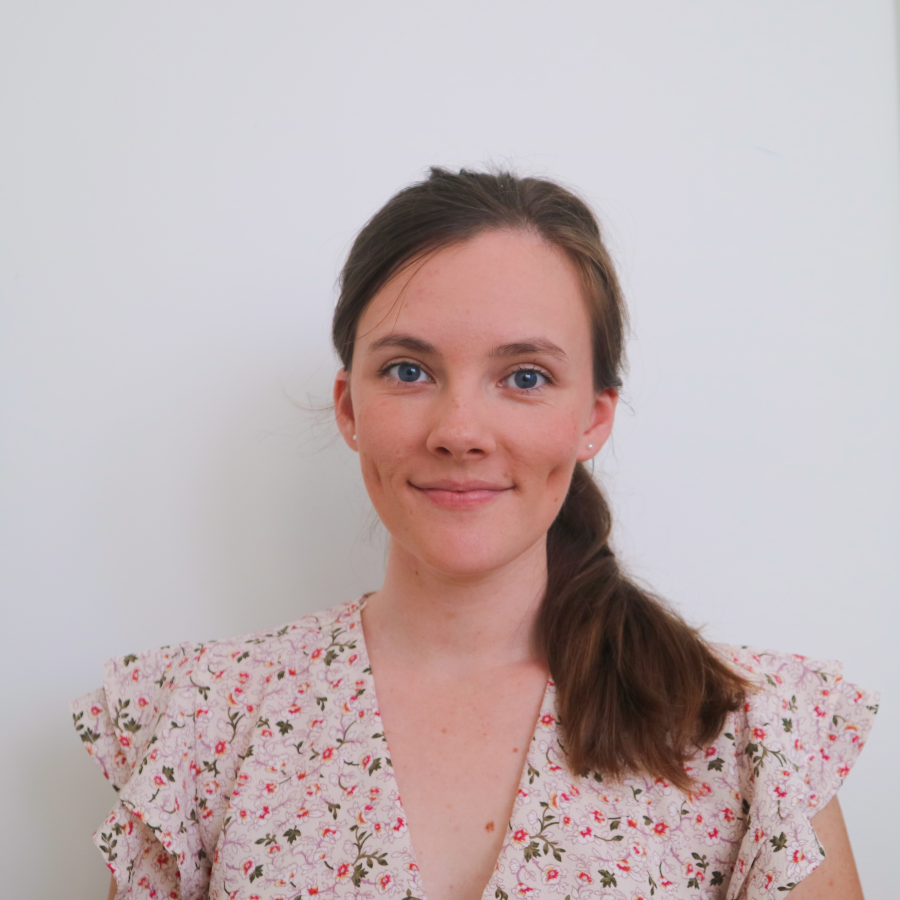 Mikaela Walker is currently a PhD student within the Antimicrobial Optimisation (AMO) group at The University of Queensland Centre for Clinical Research (UQCCR). Mikaela’s PhD is titled “A dynamic in vitro infection model evaluation of antibiotic regimens for the treatment of carbapenem-resistant Escherichia coli infections,” and she is currently looking at various combination therapies involving ceftazidime-avibactam against carbapenem-resistant E. coli.
Mikaela Walker is currently a PhD student within the Antimicrobial Optimisation (AMO) group at The University of Queensland Centre for Clinical Research (UQCCR). Mikaela’s PhD is titled “A dynamic in vitro infection model evaluation of antibiotic regimens for the treatment of carbapenem-resistant Escherichia coli infections,” and she is currently looking at various combination therapies involving ceftazidime-avibactam against carbapenem-resistant E. coli.
Mikaela began her undergraduate studies in biomedical science, primarily to broaden her horizons and opportunities. Whilst she considered herself more of a creative type as a student, Mikaela wanted to study something that challenged her, that she didn’t think she could do. During her bachelor’s degree, Mikaela found she really enjoyed working in the labs, particularly microbiology, and knew it was something she wanted to pursue further. This led her to complete an honours degree, during which she realised that she would like to learn more about antimicrobial resistance, and hence Mikaela is now a valuable part of the AMO team and PhD student at UQCCR. Although Mikaela is still at the beginning of her career, she took some time off to travel after completing her bachelor’s degree and worked in freelance writing!
One the most memorable experiences of her PhD so far has been working with our lab group members, Feakde, Saiyuri and Yixuan, developing her skills and learning new methods. Mikaela feels that it is valuable to have a solid supervisory team who have made her PhD experience straightforward and enjoyable. For Mikaela, not much feels like an overwhelming challenge when you have that kind of support behind you.
For future PhD candidates considering a similar path, Mikaela says:
“Believe in yourself. You’re capable of more than you think you are. (And make sure you find a good supervisor!)”
Outside of her work and studies, Mikaela is a self-confessed avid reader. She is at her happiest when curled up somewhere with her nose stuck in a book. Mikaela will usually carry her eReader everywhere and bring it out at every chance she gets! Waiting for an appointment? She’ll be reading. Taking a ten-minute coffee break? Reading. She will usually have an audiobook going when working solo in the lab and can get through a lot of novels during those long lab days!
We wish Mikaela all the best as she continues her PhD studies with our group.
Paul Williams
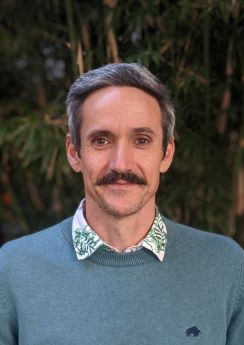 "If you are passionate and driven, I think it is a great path to take and will likely open the door to many career pathways."
"If you are passionate and driven, I think it is a great path to take and will likely open the door to many career pathways."
Paul Williams is one of our PhD candidates, whilst also the Assistant Director of Pharmacy (Clinical) Sunshine Coast Hospital and Health Service, and father of two young boys. His PhD topic is ‘Optimising care of critically ill patients through improved antibiotic dosing’, with a focus on guideline-based dosing, therapeutic drug monitoring and precision dosing software. Paul has nine publications to-date since commencing his PhD and is the first author on five of these.
Paul’s background is as a clinical pharmacist, with his experience primarily in Intensive Care Unit (ICU). This challenging and rewarding clinical role gave Paul first-hand experience in the importance of optimising antibiotic therapy in critically ill patients. Working in ICU also triggered Paul’s clinical curiosity and he commenced the ICU journal club in Nambour General Hospital to better understand the rationale for treatment options. Paul also joined the ICU research group, to learn from experienced researchers and to get involved in research. From this point, Paul has had a passion to learn, and understanding the importance that research has on advancing healthcare, saw research as a great way to contribute to society.
So far, Paul has found his PhD experience to be challenging but very rewarding. It has provided Paul with many opportunities to publish, present and most importantly to network and learn from supervisors and collaborators. For Paul, the most valuable part of the PhD journey has been the development of soft skills including critical thinking, leadership, time management, writing, communication etc.
Recently, Paul travelled to Paris and Copenhagen to present findings from our International Survey on Antibiotic Dosing and Monitoring in Adult Intensive Care Units at the European Society of Intensive Care Medicine (ESICM) LIVES 2022, and at the 33rd European Congress of Clinical Microbiology and Infectious Disease (ECCMID) 2023. Congratulations Paul!
Outside of his work and PhD commitments, Paul enjoys trail running and likes to do a few ultramarathons per year. This hobby has been incredibly important way for Paul to prioritise self-care.
Paul’s advice for someone thinking of pursuing a PhD is to firstly identify your passion and interest. Without passion it will be difficult journey to navigate. Other tips include, knowing the literature, reaching out to experts in the field, and carefully considering your supervisors to ensure you have a good rapport and shared research focus.
The AMO team looks forwards to supporting Paul through the rest of his PhD as he works towards submitting his thesis in the coming months!
Quyen Tu
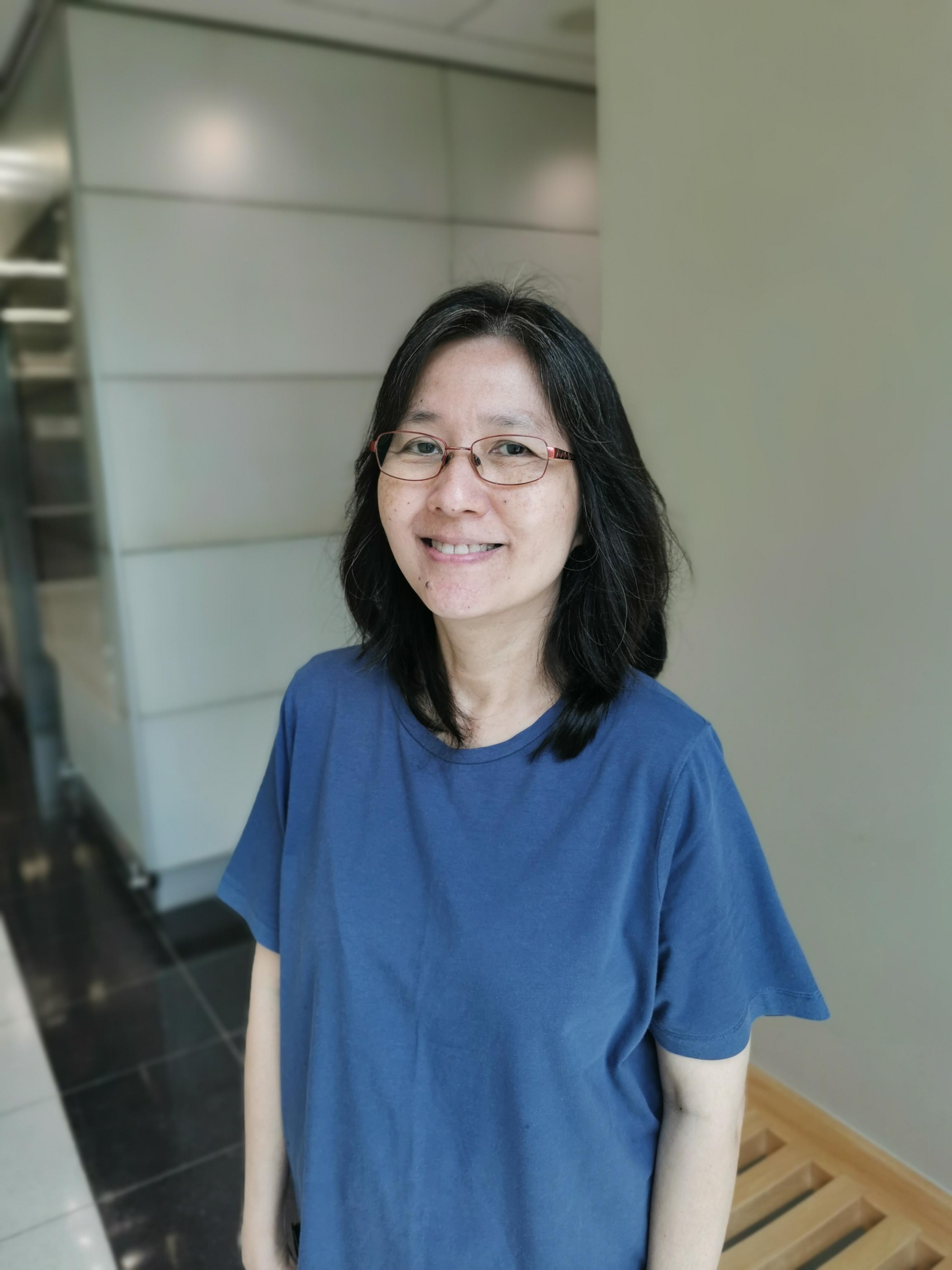 Improving antimicrobial therapy for children with sepsis and life-threatening infections
Improving antimicrobial therapy for children with sepsis and life-threatening infections
Quyen Tu is one of our PhD candidates who recently achieved her mid-candidature milestone. The top characteristic that makes Quyen stand out is her passion for learning. When she started her PhD journey, she already had a full career as a paediatric intensive care unit (PICU) pharmacist and her son was a university student. Quyen appeased her inquisitive mind and let her son help with the decision between a degree in medicine or a PhD. With the help of an intensivist Associate Professor Luregn Schalpbach then at the Queensland Children’s Hospital (QCH) PICU she landed on the problem to “set up a Bayesian dosing software to facilitate antibiotic precision dosing in the unit”, which became the focus of her PhD studies.
Quyen’s career as a clinical pharmacist has spanned over 20 years, first training at a geriatric hospital and after seven years changing to work with children in the PICU. One of the highlights of her clinical pharmacist career involved pioneering the extensive Dose Error Reduction Systems in the PICU, which safeguards the medication infusion pumps, in preparation for setting up the ECMO service. She also developed the PICU parenteral medication database within the clinical information system, Metavision, in preparation for merging the Mater and Royal Children’s PICUs into the new QCH PICU. Quyen also contributed to the creation of the Children’s Intensive Care Drug Directory, a state-wide resource which assists clinicians in preparing and administering continuous drug infusions for children requiring intensive care in Queensland.
Antimicrobials, pharmacokinetics, paediatric intensive care, and model-informed precision dosing are at the centre of Quyen’s research interests with PhD title: “Improving antimicrobial therapy for children with sepsis and life-threatening infections”. Quyen Tu mentions that working with Professor Jason Roberts and Dr Menino Os Cotta and the Antimicrobial Optimisation (AMO) group, has been the most valuable experience so far in her PhD studies. Dr Sainath Raman mentors Quyen and she is currently working on a prospective interventional study investigating the ability in achieving antibiotic therapeutic targets with the support of a Bayesian dosing software.
A PhD is challenging and for Quyen health and time constraints have been the hardest. Quyen unwinds with baroque, classical, and romantic music or her gardening hobby.
Quyen encourages others on the same pathway that “if an old brain like me could do it, everybody can” and that “passion comes first, everything else will follow”.
“Passion comes first, everything else will follow”.
The AMO team appreciate Quyen’s warm personality and her insightful contributions to the group so far. We look forward to supporting Quyen through to the end of her PhD and beyond.
Completed PhD students
Dr Gene Chai
Gene Chai completed his PhD with the Antimicrobial Optimisation Team at UQCCR. 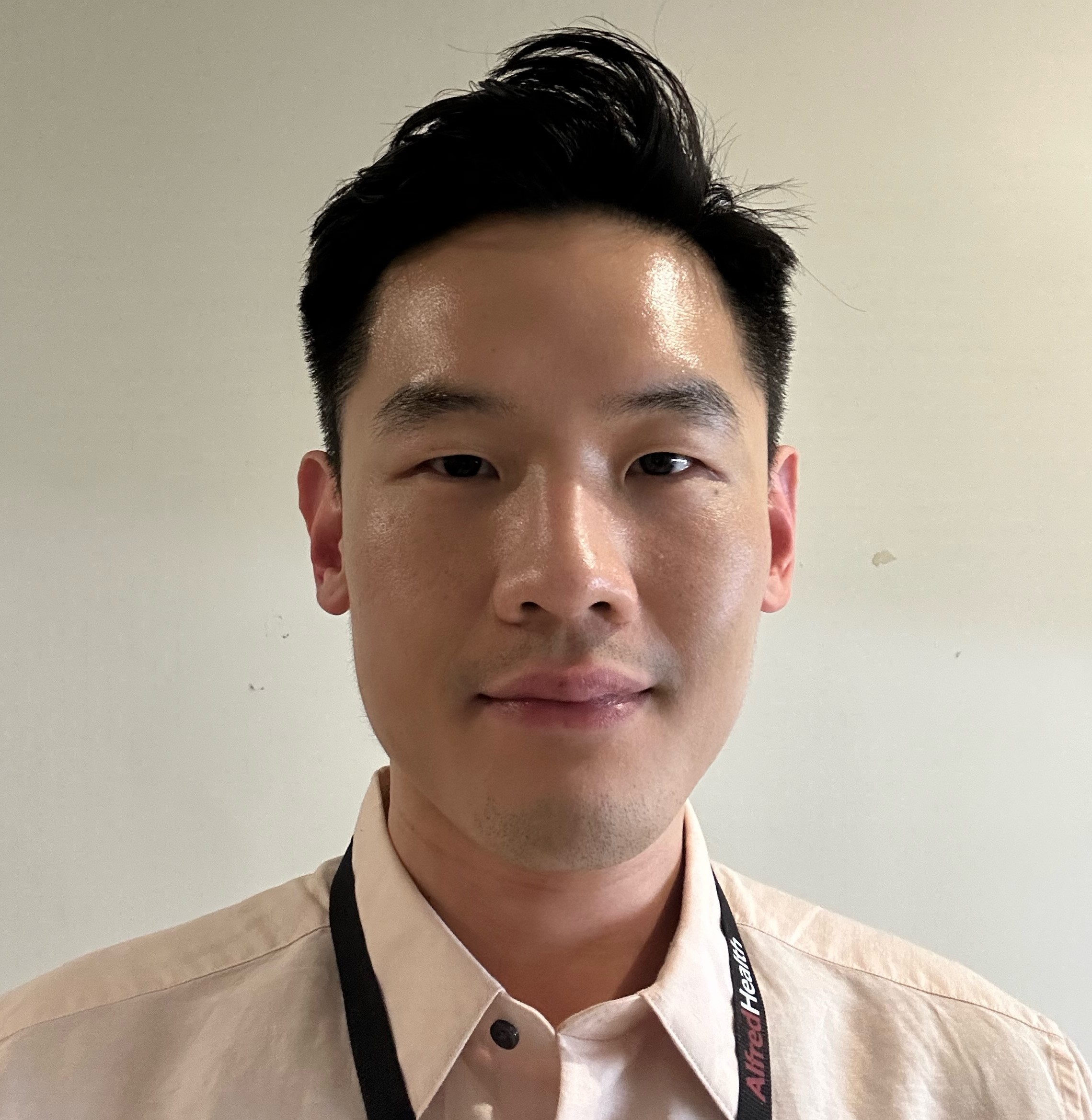 Gene is the Lead Pharmacist at the Intensive Care Unit (ICU) at Alfred Health, Victoria.
Gene is the Lead Pharmacist at the Intensive Care Unit (ICU) at Alfred Health, Victoria.
Gene started his career journey with a Bachelor of Pharmacy (completed 2012) and commenced working as an intern, then a registered pharmacist in public hospital settings in Victoria. He developed an interest in critical care following an elective rotation, and accepted the opportunity to return to the ICU as a pharmacist where he has been working since.
Gene quickly realised the challenges clinicians face when deciding if critically ill patients have been prescribed the optimum dose of antibiotics. He soon became aware of the seminal work from Jason Roberts’ group in Queensland and felt that completing a PhD would be a great opportunity to learn more about antimicrobial dosing and pharmacokinetics in critically ill patients. In addition, this experience enabled Gene to consider if a research career would be something he may like to pursue long-term.
Gene’s main interest continues to be looking at ways of optimising therapeutic drug monitoring, and applying some of the skills that he has learnt in Queensland within his local context. For instance, one of Gene’s current projects involves working with a group of clinicians at Alfred Health to assess how they can introduce therapeutic drug monitoring for commonly used antibiotics in the ICU.
One of Gene’s most memorable moments as part of his PhD was being able to run a multicentre clinical trial. He found this experience quite exciting and it made him realise that he has an interest in coordinating complex projects. Gene has also enjoyed meeting and collaborating with other researchers from different fields whilst completing his PhD at UQ. For example, his work with researchers from computer and behavioural sciences led to data that will form part of his thesis.
One of Gene’s challenges during his time at UQ was the pandemic, which occurred just after Gene commenced his PhD. Whilst Queensland was not as affected by as many lockdowns as other states, Gene was unable to return home to Victoria for most of his PhD, although he believes this may have also helped him to be more productive!
For others pursuing a similar career pathway, Gene would recommend speaking to people who have lived experience. Talking to current or previous students of a group can give great insight into what it’s like to be a research student.
“Everyone has a different journey to getting where they are, and their experience can provide great insight on the challenges and rewards along the way. It’s a terrific way of working out what might be the best journey for you without all the trial and error involved.”
Outside of work, Gene is a self-confessed group fitness junkie doing multiple classes per week!
Congratulation Dr Chai!
Dr Eko Setiawan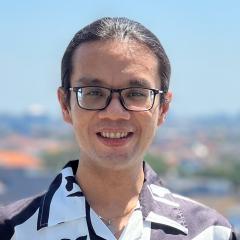
"Believe in yourself and always be ready to take up opportunities!”
This is the advice our most recent PhD graduate, Dr Eko Setiawan, would like to give to students starting their postgraduate journey. Eko was curious to understand what he could contribute to address the immense problem of antibiotic resistance in the Asia Pacific area. More specifically and given his background, he was interested in how antimicrobial use could be improved in the Indonesian population. Eko was awarded an Australian scholarship to research this challenging question.
Already a pharmacy lecturer at the University of Surabaya with experience in the Centre for Medicines Information and Pharmaceutical Care UBAYA, Eko felt very much at home at UQCCR. He referred to it as a “science sanctuary” where he could collaborate with people who participate in cutting-edge research that has the potential to solve complex problems from which life-saving treatments emerge.
The knowledge he has gained in the field of pharmacokinetics and pharmacometrics during his PhD, have furthered Eko’s resolve to teach aspiring clinicians and researchers about strategies to optimise antimicrobial use. We are certain that he will do this effectively, especially given his new roles as Course Coordinator for the Integrated Course of Medicines for Infectious Diseases and Respiratory Disorders and as a committee member for developing the Strategic Plan of the University of Surabaya.
The connections and collaborations he has fostered at UQ will enhance Eko’s ability to achieve his passion for facilitating clinical research in developing countries. He hopes to continue to bridge the gap of unmet need. During his time with our group, Eko has always expressed a selfless and joyful attitude, while striving to meet the highest standard of research.
Congratulations Dr Setiawan!
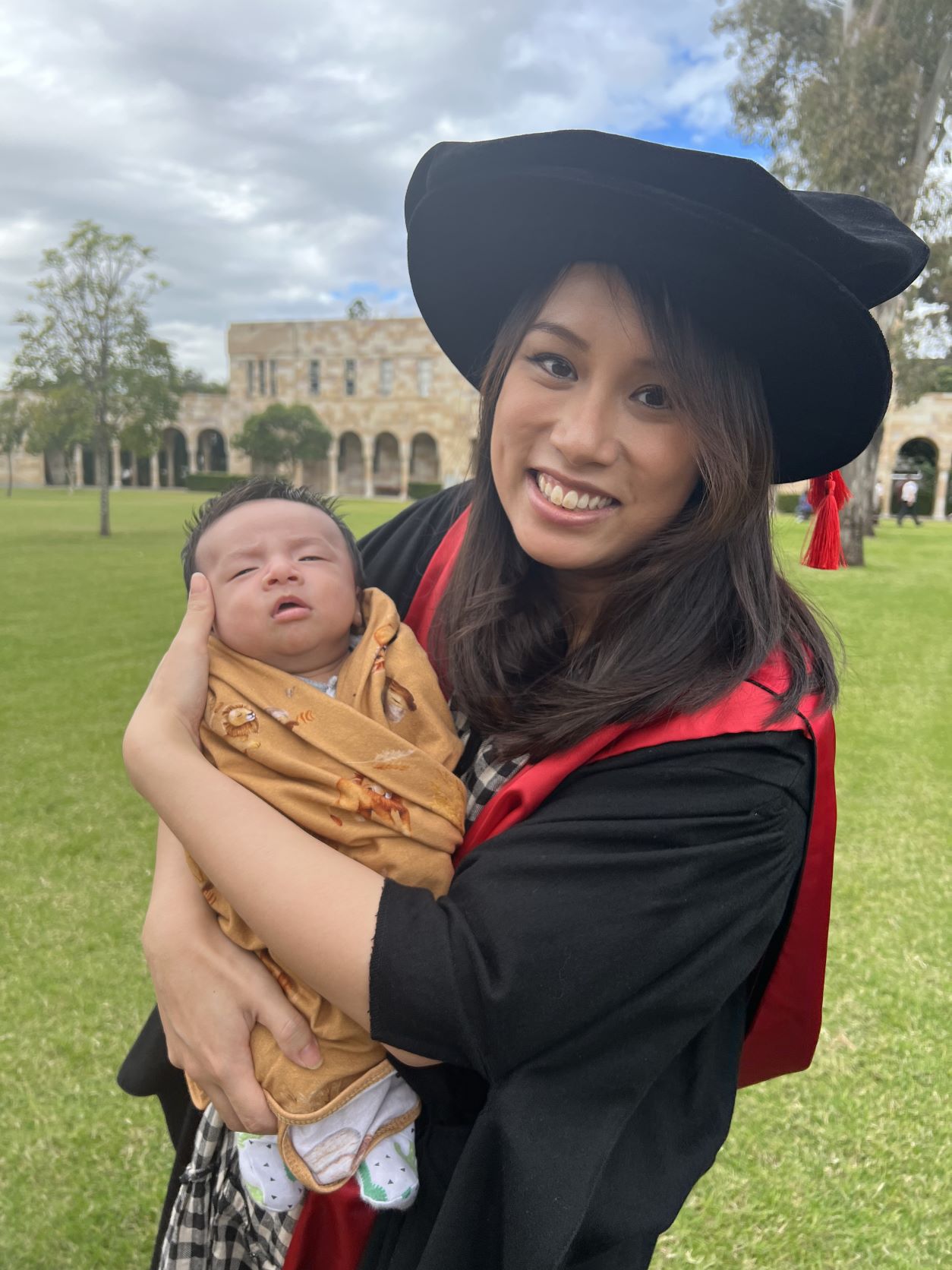 Dr Vesa Cheng
Dr Vesa Cheng
If you have a growth mindset, are willing to challenge yourself and learn from mistakes then you will be a great candidate for a PhD. Vesa Cheng has thrived during her PhD at The University of Queensland. As a junior pharmacist and already having a passion for antimicrobial stewardship, she was inspired to start a higher degree by research after listening to Prof Jason Roberts presenting on antimicrobial dosing at a conference.
Vesa has since successfully completed her PhD research project describing the pharmacokinetics of commonly used antimicrobial agents in critically ill patients on extracorporeal membrane oxygenation (ECMO) and developing dosing strategies to attain PK/PD targets in this patient population. The PhD journey was not without challenges, the most memorable occurring right at the end of her studies when she was suffering from terrible morning sickness while presenting her Thesis Oral Defence! Other highlights include feeling empowered and guided by fantastic mentors through a journey of self-discovery and flying to Paris to present at an international conference.
Vesa is currently on maternity leave with her four-month-old baby but given the flexible nature of research, she has embraced the opportunity to work on small projects at her own pace in the field of antimicrobial pharmacometrics. Vesa is currently creating an easily accessible, multimodal international course to teach clinicians how to dose antimicrobials in ICU patients.
“Just do it! Never say “no” to something out of fear of not doing it well. You will meet great mentors along the way who will happily guide you along,” Vesa says.
Dr Vesa Cheng also gratefully acknowledges Dr Hafiz Abdul-Aziz who is the Workstream Lead for CRE RESPOND Clinical Dosing Studies.
Dr Kamrul Islam
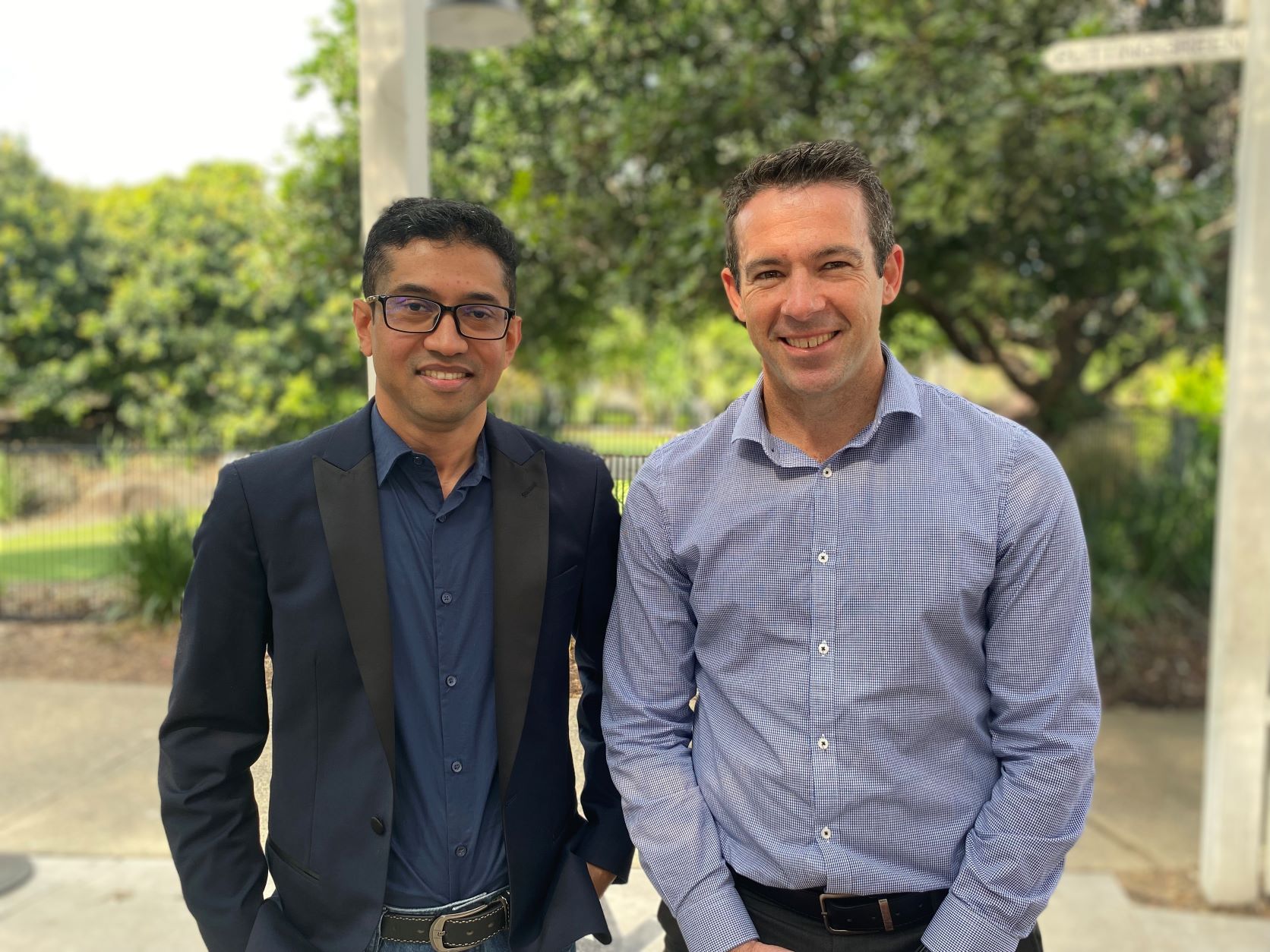 Carbapenems are often considered last resort antibiotics to treat infection so clinicians must use these sparingly to avoid the emergence of antibiotic resistant pathogens. Dr Kamrul Islam has come to Australia specially to complete a PhD on this topic.
Carbapenems are often considered last resort antibiotics to treat infection so clinicians must use these sparingly to avoid the emergence of antibiotic resistant pathogens. Dr Kamrul Islam has come to Australia specially to complete a PhD on this topic.
“There is an urgent need for carbapenem-sparing antibiotics for ESBL-infections. This research question has been my inspiration during doctoral research on extended-spectrum β-lactamase-producing E. coli,” he says.
Kamrul’s research demonstrated that combining certain antibiotics together is effective treatment against ESBL-producing E.coli or difficult to treat multidrug resistant bacterial infections. This work ensures that carbapenems remain a last resort treatment and saved for the future.
With qualifications and experience as a veterinarian, microbiologist, epidemiologist, and biosafety/biosecurity consultant Kamrul was determined to further develop his knowledge and apply it to improve the country’s ability to prevent, detect and respond to the threat of infectious diseases. Having completed his PhD, he now works as a Pharmacovigilance Specialist with a leading scientific organisation, configuring safety databases, recording, and coding adverse events, consulting with specialist clients and key safety organisations.
Kamrul is grateful for the mentorship of world-leading scientists such as Prof Jason Roberts who think critically and apply strong quantitative reasoning and analytical skills and leverage the knowledge of multi-disciplinary teams to address complex problems.
Kamrul encourages anyone who is curious about doing a PhD to "think through and understand the research they would like to do, contact potential mentors or supervisors, discuss ideas and challenges, and stay positive".
It is possible that knowledge generated through your research will contribute to better use of antibiotics and improved health outcomes for patients.
Dr Kamrul Islam also gratefully acknowledges the supervision of Dr Fekade Sime who is Workstream Lead for CRE RESPOND Dynamic Bacterial Kill studies.
Dr Islam was commended by his thesis examiners and subsequently obtained formal recognition for his work in this area, achieving The Dean’s Award for Outstanding Higher Degree by Research Theses. The standard of his thesis was exceptional and made an outstanding contribution to the field of research.
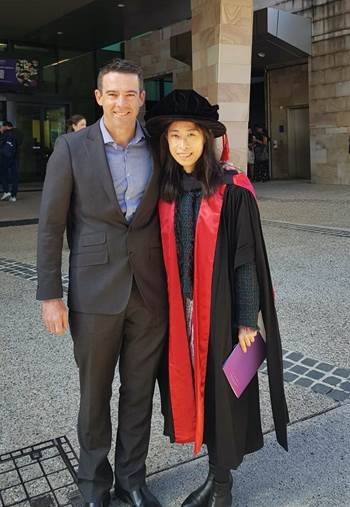 Dr Gloria Wong
Dr Gloria Wong
Nothing fully prepares you for the roller-coaster that is a PhD journey while working as a clinician, as Gloria Wong discovered. Her interest in research started early on before medical school, when she studied pharmacology and subsequently worked in the industry. As a curious person, she decided to take her long-standing interest in pharmacokinetics further and tie those elements together with clinical practice and do some good. That meant joining the clinician-scientist track in medical school to pursue this interest.
Gloria's thesis title was: "A pharmacokinetic/pharmacodynamic and clinical outcome evaluation of beta-lactam antibiotic therapeutic drug monitoring (TDM) in critically ill patients". She explored the impact of hypoalbumiaemia on beta-lactam PK/PD in the critically ill, and utilization of unbound drug measurements in TDM to optimise beta-lactam dosing. The ultimate experience that taught Gloria a valuable lesson was the looming thesis deadline. However, the invaluable support she received from her supervisors Prof Jason Roberts and Prof Jeffrey Lipman, along with her readers meant that she could confront the challenge with confidence. Juggling clinical work at 100% capacity alongside research meant that the washing had to wait for another day!
While Gloria is on track for finishing her physician training in general medicine, she is also working on two projects: retrospective analysis on the outcome of patients admitted for medical management of eating disorder, and factors associated with increased refeeding risk; and pharmacokinetics of antipsychotics in the elderly with schizophrenia. To balance out the demands of her career, she enjoys music, the company of her godchildren, quilting and sewing.
Gloria would advise any future PhD students, not to view the journey as race and just go for it. She also thinks it’s important to hold onto your sense of humour along the way.
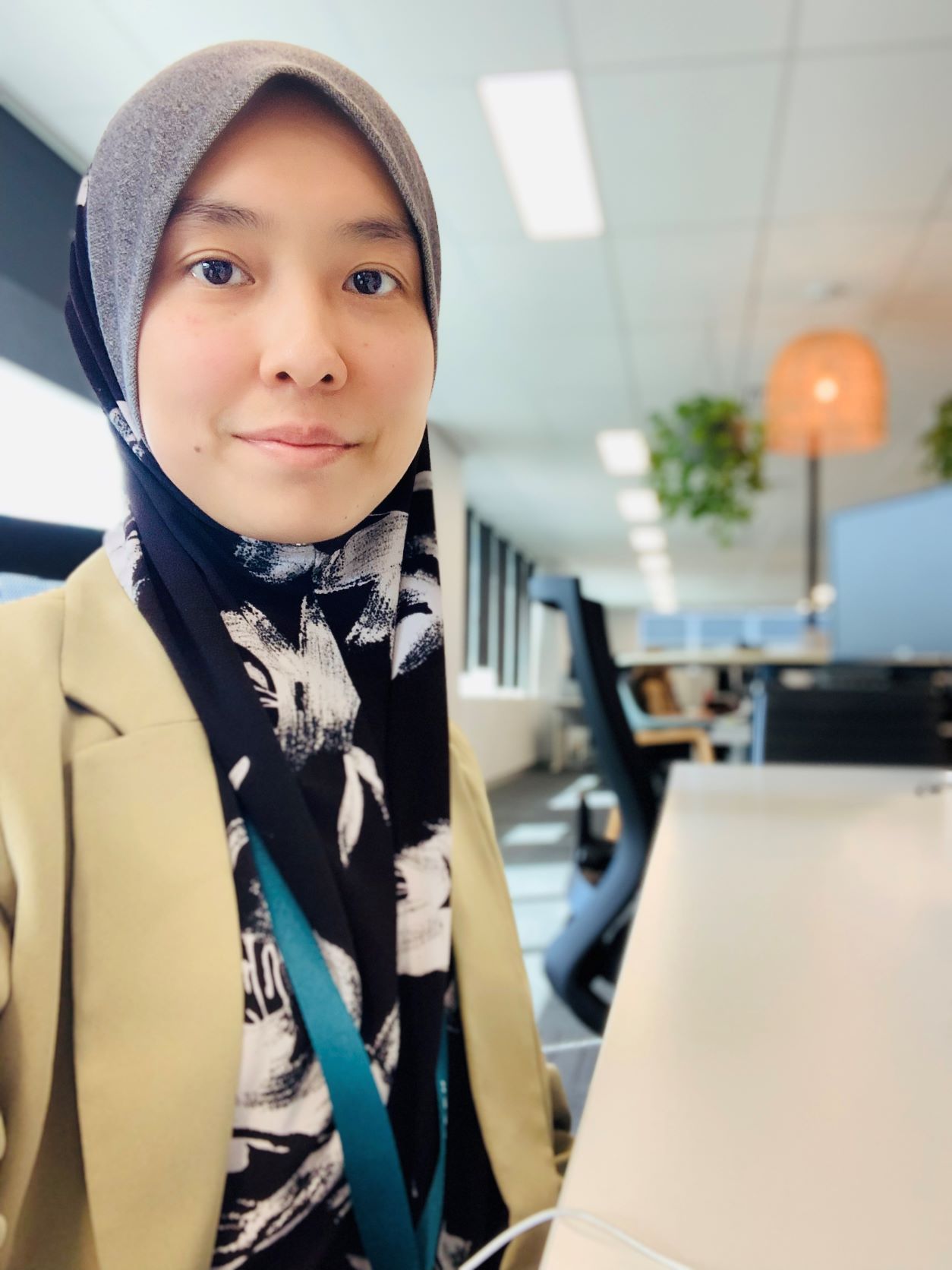 Dr Sazlyna Mohd Sazlly Lim
Dr Sazlyna Mohd Sazlly Lim
“It has been a brilliant and rewarding journey! Awesome advisors and colleagues, and the scholarship I received has made this journey possible.”
Dr Sazlyna Mohd Sazlly Lim had been interested in pursuing a PhD since her fellowship in Infectious Disease, where she developed a keen interest in treatment of multidrug-resistant (MDR) bacterial infections and antimicrobial stewardship.
A colleague introduced her to CRE REDUCE (currently known as CRE RESPOND) which was offering PhD projects and she immediately “fell in love” with one of the projects on pharmacodynamics of antibiotics against MDR bacteria. She had heard of Professor Jason Roberts and Dr Fekade Sime, from a colleague after seeing their profiles was convinced that they would be the best people to guide Sazlyna on her PhD journey.
After contacting and meeting them by Skype, Sazlyna started her application to UQ and soon received an offer for admission into the programme and after a second attempt, an offer for the UQ Research Training Scholarship. Sazlyna says that she felt well supported by her advisors, and they gave her opportunities including to work on a paper for publication to further strengthen her CV.
Having graduated from Barts and The London in 2009 and subsequently returning to Malaysia to complete a 2-year internship, Sazlyna then trained in Internal Medicine and completed the MRCP (UK) examinations, to be admitted as a member of the Royal College of Physician (UK) in 2013. She continued training in Internal Medicine for another 2 years, and in 2015 Sazlyna started a Fellowship in Infectious Diseases. During this time, she developed a keen interest in the treatment of MDR bacterial infections, which was the main reason for pursuing a PhD in this field.
The most valuable experience for Sazlyna were the people she met on this journey! “I had supportive advisors who really looked after my well-being and student colleagues (Aaron, Saiyuri and Kamrul) who were more than willing to help and teach me from the ground up. Mainly from a clinical background, I did not have much experience in laboratory work. It was a steep learning curve for me, an experience which I found humbling and rewarding. I was blessed to have been surrounded by people who are kind and passionate about research and ever willing to teach. Various other researchers (Hafiz, Helen, Steve, Abdrulrahman and Hosam) were also so very willing to help, for which I am very grateful.”
“There were other challenges since I came to Australia with a young family. My husband sacrificed time and put his career on hold so that we could all be here, and I could pursue my PhD.”
Sazlyna’s advice is to, “Persevere, have discipline, plan, and organize your work, manage your time, and just as importantly, take care of yourself, physically and mentally, and give yourself time to rest and recharge.”
Sazlyna currently works as a Medical Monitor with a Contract Research Organization. This role involves providing medical and safety oversight of clinical trials.
Dr Aaron Heffernan
"Be curious! Do a higher degree by research for the right reasons. You really need to love the role."
Dr Aaron Heffernan began a PhD to satisfy his curiosity for understanding health problems from different perspectives. He found that working as a community pharmacist, intern pharmacist and then AMS/relieving pharmacist did not quench his desire for knowledge and was captivated by the diagnostic reasoning of clinicians. This ultimately led him to complete his medical studies. “The sense of discovery and satisfaction when you answer a question that can potentially change the management of a patient is second to none from a professional perspective,” Aaron says.
His interest in antibiotic use for critically unwell patients was piqued by the nuanced antibiotic treatment and dosing of a young man with severe pneumonia driven by the complex interplay of influenza B and H. influenzae pathogens. Aaron was awarded an Excellence Award from Griffith University for his PhD thesis titled “Dose optimisation of intravenous and nebulised antibiotics for the treatment of Pseudomonas aeruginosa pneumonia” which he completed in collaboration with the Antimicrobial Optimisation Group and CRE REDUCE. His focus was the PK/PD of antimicrobials in critical care settings.
Three experiences nudged Aaron on his career defining journey. Dr Nai An Lai, Intensivist at QEII hospital, inspired Aaron to “continually ask questions and seek answers as our patients deserve the very best of care” and pursue a medical career. Meeting Professor Jeffrey Lipman and Professor Jason Roberts who emboldened Aaron in his research recourse and PhD. The driver though has been his genuine passion for doing everything he can to help people from a diverse and disadvantaged background.
Now a General Medicine Principal House officer at the Logan Hospital, Aaron is putting his PhD to good use through further PK/PD studies and developing individualised approaches to antimicrobial therapy. He is involved in projects to manage critically ill patients, through quality use of antimicrobials in septic patients in rural settings, enteral feed optimisation, management of status asthmaticus, and work in medical education.
“There are many challenges – rejected papers, experiments failing, grant rejections and the personal impact that the additional work takes on the home front can be quite challenging. A growth mindset and a ‘zen’ approach helps to manage these situations.”
Aaron’s resilience is spurred by interests in running, reading, and listening to music. Self-care is key to a happier and more productive outlook.
